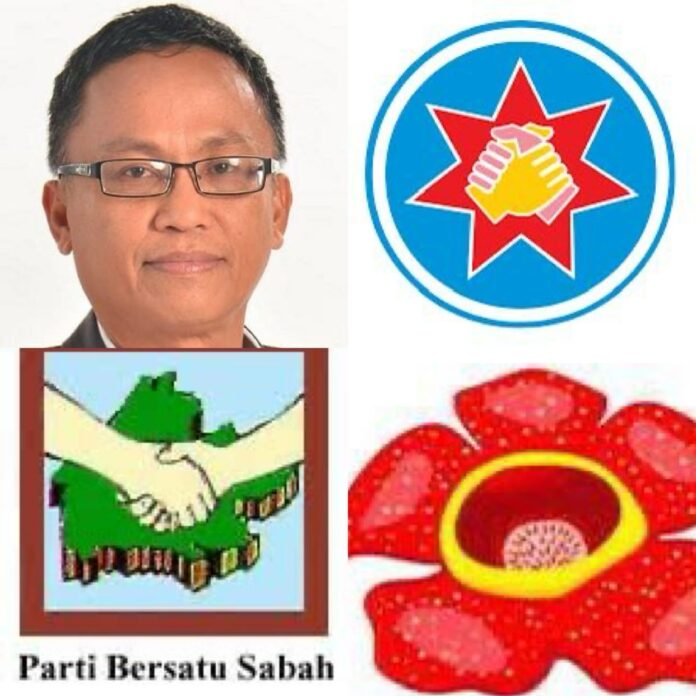KOTA KINABALU: In light of the unexpected results of the 15th general election, where KDM candidate Datuk Wetrom Bahanda triumphed over PBS president Datuk Dr Maximus Ongkili for the Kota Marudu parliamentary seat, KDM is now expected to pose a significant challenge to both PBS and STAR, which are part of the Gabungan Rakyat Sabah (GRS), in the upcoming state elections.
Many political observers predict that PBS and STAR will face a tough battle to defend or secure the state seats allocated to them, particularly in the interior and northern coastal regions of Sabah.
This includes traditional PBS state seats such as Matunggong, Tandek, Bandau, Melalap, Limbahau, and Kemabung, as well as the STAR’s state seats of Tulid and Sook.
Analysts also foresee KDM, currently led by Priscella Peter, having a mathematical chance of pulling off an upset in PBS strongholds, including Kundasang, Kiulu, Tamparuli and STAR strongholds of Bingkor and Liawan.
Political analyst and social activist Dr. Kanul Gindol acknowledges that the political landscape in Sabah is unpredictable and often tumultuous.
“I have noticed a recent trend where our people are leaning towards local parties, especially in areas with a significant Kadazandusun Murut voter base, which gives KDM a slight advantage,” he stated.
PBS and STAR are part of the GRS coalition that, along with PH Sabah, governs the state.
Dr Kanul noted that the strong public response to both political and non-political events organised by KDM recently indicates that the party is poised to challenge STAR, PBS, and even GRS effectively.
“I have personally attended several KDM events in the Kadamaian area and observed a growing support for KDM among the people.
“While we cannot predict the outcome, it is evident that those shifting away from GRS, BN, or PH currently have limited options,” he said when contacted by Jesselton Times.
Dr Kanul further explained that in predominantly Kadazandusun areas, there is an increasing inclination to support KDM, especially if the government party candidates in those regions are not from STAR or PBS.
“Seats like Pitas and Bengkoka are within the radar of KDM, especially since KDM is expected to field a candidate in one of those constituencies.
“Similarly, in Kadamaian, if GRS and PH put up a candidate from UPKO, there is no guarantee that supporters of PBS, STAR, and PBRS will vote for the UPKO candidate,” he remarked, adding that in the last state election, PBS and PBRS faced off in that area.
In the 2020 contest, he pointed out, the votes garnered by PBS and PBRS were nearly equal to those received by UPKO, which won in Kadamaian at that time.
He also mentioned that UPKO is no longer aligned with Warisan but is now with PH and GRS, while anti-Malaya party sentiments are strong at the grassroots level.
“It is still too early to determine who will benefit from this scenario; however, there is a noticeable shift towards rejecting a culture of political corruption, greed, and prolonged tenure in office.
“The emergence of KDM has revitalised the political landscape, particularly within the Kadazandusun and Murut communities, which have been dominated by PBS for the past 40 years and later influenced by STAR.
“Every month leading up to the state election will bring significant changes for all parties, including KDM,” he added.


